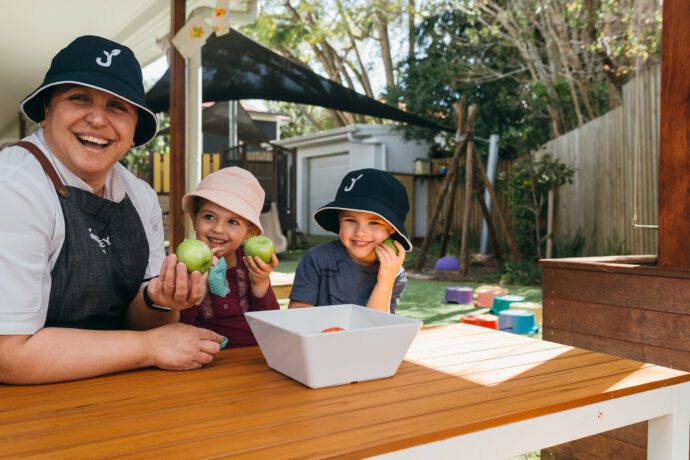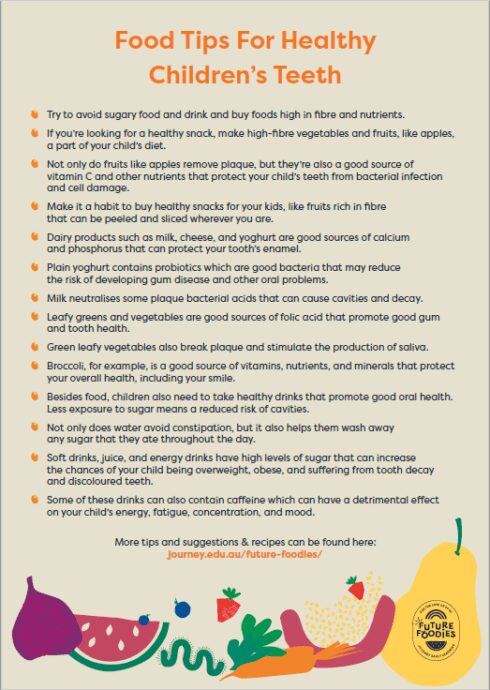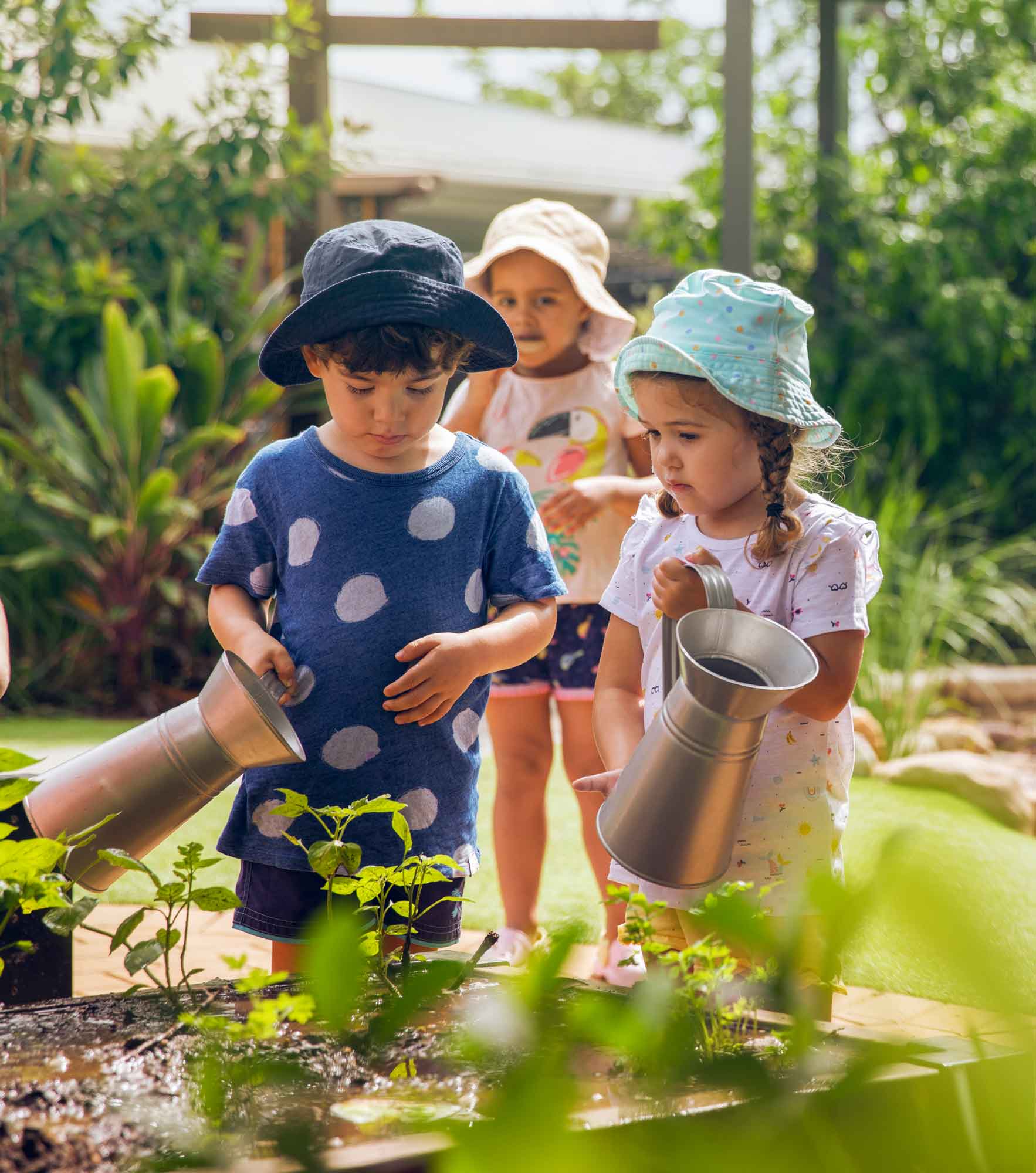Eating What Makes Teeth Happy

Bookstores are often good for a surprise or two. The last time there was a book called “The Dental Diet: The Surprising Link Between Your Teeth, Real Food, And Life-Changing Natural Health”. Well, another health guide, you might say, even though it seemed to be written by a dentist who also holds the title of the first dental nutritionist. Even if the book wasn’t bought that day, the idea is not uninteresting: How to eat in a way that makes teeth happy.
Not just when it comes to food: Oral health is important at all ages, but very young children have to rely on their parents or other caregivers to give their teeth and gums the care they need. Your child’s baby teeth act as markers for adult teeth to come through, and while they are going to fall out one day, they still need to be cared for just like permanent teeth do. Good oral hygiene and eating habits help children to avoid tooth decay and other problems that could have a long-term impact.
With Journey’s exclusive Food Program Future Foodies, we have, of course, an extremely competent person on our side when it comes to balanced and healthy nutrition. Our Chief Foodie Officer (CFO), Teri Lichtenstein, is an accredited nutritionist and dietician with over 25 years of experience and is a mother of two. And who, if not her, should we ask for tips on a dental-healthy diet?
Future Foodies
Food tips to keep children’s teeth happy
Try to avoid sugary food and drink and buy foods high in fibre and nutrients.
If you’re looking for a healthy snack, make high-fibre vegetables and fruits, like apples, a part of your child’s diet.
Not only do fruits like apples remove plaque, but they’re also a good source of vitamin C and other nutrients that protect your child’s teeth from bacterial infection and cell damage.
Make it a habit to buy healthy snacks for your kids, like fruits rich in fibre that can be peeled and sliced wherever you are.
Dairy products such as milk, cheese, and yoghurt are good sources of calcium and phosphorus that can protect your tooth’s enamel.
Plain yoghurt contains probiotics which are good bacteria that may reduce the risk of developing gum disease and other oral problems.
Milk neutralises some plaque bacterial acids that can cause cavities and decay.
Leafy greens and vegetables are good sources of folic acid that promote good gum and tooth health.
Green leafy vegetables also break plaque and stimulate the production of saliva.
Broccoli, for example, is a good source of vitamins, nutrients, and minerals that protect your overall health, including your smile.
Besides food, children also need to take healthy drinks that promote good oral health. Less exposure to sugar means a reduced risk of cavities.
Not only does water avoid constipation, but it also helps them wash away any sugar that they ate throughout the day.
Soft drinks, juice, and energy drinks have high levels of sugar that can increase the chances of your child being overweight, obese, and suffering from tooth decay and discoloured teeth.
Some of these drinks can also contain caffeine which can have a detrimental effect on your child’s energy, fatigue, concentration, and mood.
As it is a holistic approach that we are following with the Future Foodies Program, it goes without saying that all these considerations go into the Future Foodies menu, as well as the fresh, seasonal, and wholesome produce, the aspect that we are keen to expand the children’s palets with herbs and spices or that we custom the menus to individual needs like allergies or intolerances. Just to name a few.
Of course, smart eating alone is not enough for good oral health for children. That’s why we would like to add a few general tips on dental hygiene:
Tooth brushing
- Before your child starts getting teeth you can clean their gums using a clean, damp cloth.
- 4-18 months: As soon as your child’s first teeth appear, clean them using a child-sized soft toothbrush, without toothpaste.
- From 18 months of age, brush your child’s teeth twice a day with a small (smear) amount of fluoride toothpaste.
- Children should spit out and not swallow the toothpaste.
- Do not rinse their mouth with water after brushing; this will allow the fluoride from the toothpaste to better protect their teeth.
- Help your child with brushing until they are eight years old.
- Make tooth brushing fun – play a song, use a timer or tooth brushing app.
- Children often go through stages of not wanting to brush. Establishing a routine will help them later in life and keep their teeth happy.
Other helpful Tips:
- Wean toddlers off dummies
- See their dentist by their first birthday and then on regular bases
- And last but not least: Be a good role model: Look after your own oral health


